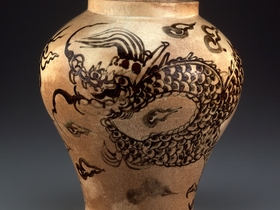By letter dated December 16, 2022 United States Trade Representative Katherine Tai requested that the International Trade Commission (ITC) perform a study on the effects of TRIPS flexibilities on Covid-related pharmaceutical innovation and distribution. The Trade-Related Aspects of Intellectual Property Rights (TRIPS) agreement was put into effect by the member nations of the World Trade Organization (WTO) in 1995. This multinational agreement established basic policies for intellectual property (IP) in the global trade environment and introduced dispute settlement mechanisms for IP-related disagreements. Although the TRIPS agreement has been in effect since 1995, Covid may be one of the most challenging issues this agreement has faced.
Following the Doha Round of negotiations, the TRIPS agreement was updated to specifically provide for compulsory licensing of pharmaceutical products for public health. The compulsory license allows a government or court to extend patented inventions without consulting the patent owner. This addition to TRIPS was introduced to permit low-income nations and nations with poor pharmaceutical industries to access innovative medicines and other medical necessities. Although a broader provision, TRIPS also contains a clause for public interest in IP developments, such as those necessary to public health. Both clauses in the TRIPS agreement were created to promote innovation that could aid global demand.
Now that Covid has arrived and spread, TRIPS has been put to the ultimate test between promoting innovation and protecting public health. Katherine Tai and the USTR are questioning whether Covid has helped or hindered the current IP trade arena. Specifically, the main inquiry is the use of compulsory licensing to share access to Covid-related vaccines, therapies, and diagnostics. Has compulsory licensing truly increased the production, trade, and global logistics of Covid treatments across all member nations including those of low-income status or poor manufacturing industries? Simply put, are the Doha additions in TRIPS getting the job done?
Tai has also asked the ITC to investigate whether other solutions could be helpful to promote pharmaceutical innovation during an international pandemic. Voluntary licensing, fundraising in the private sector, and government aid programs have all been suggested as alternatives or further responses to improved global health results. The USTR is requesting the study on TRIPS and the impact of Covid be completed by next October 2023. The ITC study should cover the successes and failures of the TRIPS agreement in action using the Covid treatments as examples, as well as solicit public comment on the matter. As Covid expands, TRIPS should account for the trade of new innovative treatment methods in low-income countries. Tai did not seek policy recommendations based on the studies’ results, however, the information gained from the study is a necessary first step in ending establishing such policy.
If you or your company wishes to make a public comment on the impact of Covid on the TRIPS agreement and the spread of Covid treatments, the attorneys at Barnes, Richardson, and Colburn are here to help. Please feel free to reach out to us with any questions or concerns regarding international IP law, pharmaceutical innovation, or the TRIPS agreement in general.




